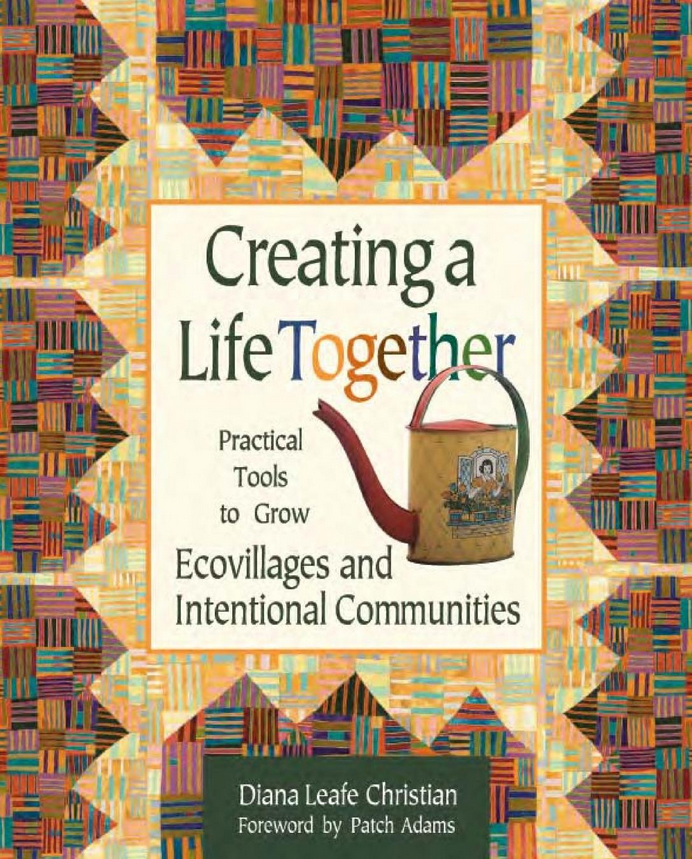Read free. Creating a Life Together: Practical Tools to Grow Ecovillages and Intentional Communities, by Diana Leafe Christian, 2003.
Excerpt
A residential or land-based intentional community is a group of people who have chosen to live with or near enough to each other to carry out their shared lifestyle or common purpose together. Families living in a cohousing communities in the city, students living in student housing cooperatives near universities, and sustainability advocates living in rural back-to-the-land homesteads are all members of intentional communities.
Community is not just about living together, but about the reasons for doing so. “A group of people who have chosen to live together with a common purpose, working cooperatively to create a lifestyle that reflects their shared core values,” is one way the non-profit Fellowship for Intentional Community describes it.
What most communities have in common is idealism: they’re founded on a vision of living a better way, whether community members literally live together in shared group houses, or live near each other as neighbors. A community’s ideals usually arise from something its members see as lacking or missing in the wider culture.
Ecovillages are intentional communities that aspire to create a more humane and sustainable way of life. One widely quoted definition (by Robert and Diane Gilman) defines ecovillages as “human-scale, full-featured settlements in which human activities are harmlessly integrated into the natural world in a way that is supportive of healthy human development, and which can be successfully continued into the indefinite future.”
An intentional community aspiring to become an ecovillage attempts to have a population small enough that everyone knows each other and can influence the outcome of community decisions. It hopes to provide housing, work opportunities, and social and spiritual opportunities on-site, creating as self-sufficient a community as possible. Typically, an ecovillage builds ecologically sustainable housing, grows much of its own organic food, recycles its waste products harmlessly, and, as much as possible, generates its own off-grid power.
Introductory Pages
Related Posts

transitionnetwork.org

EcoVillage at Ithaca

Ecovillage living : restoring the earth and her people

Community Building










